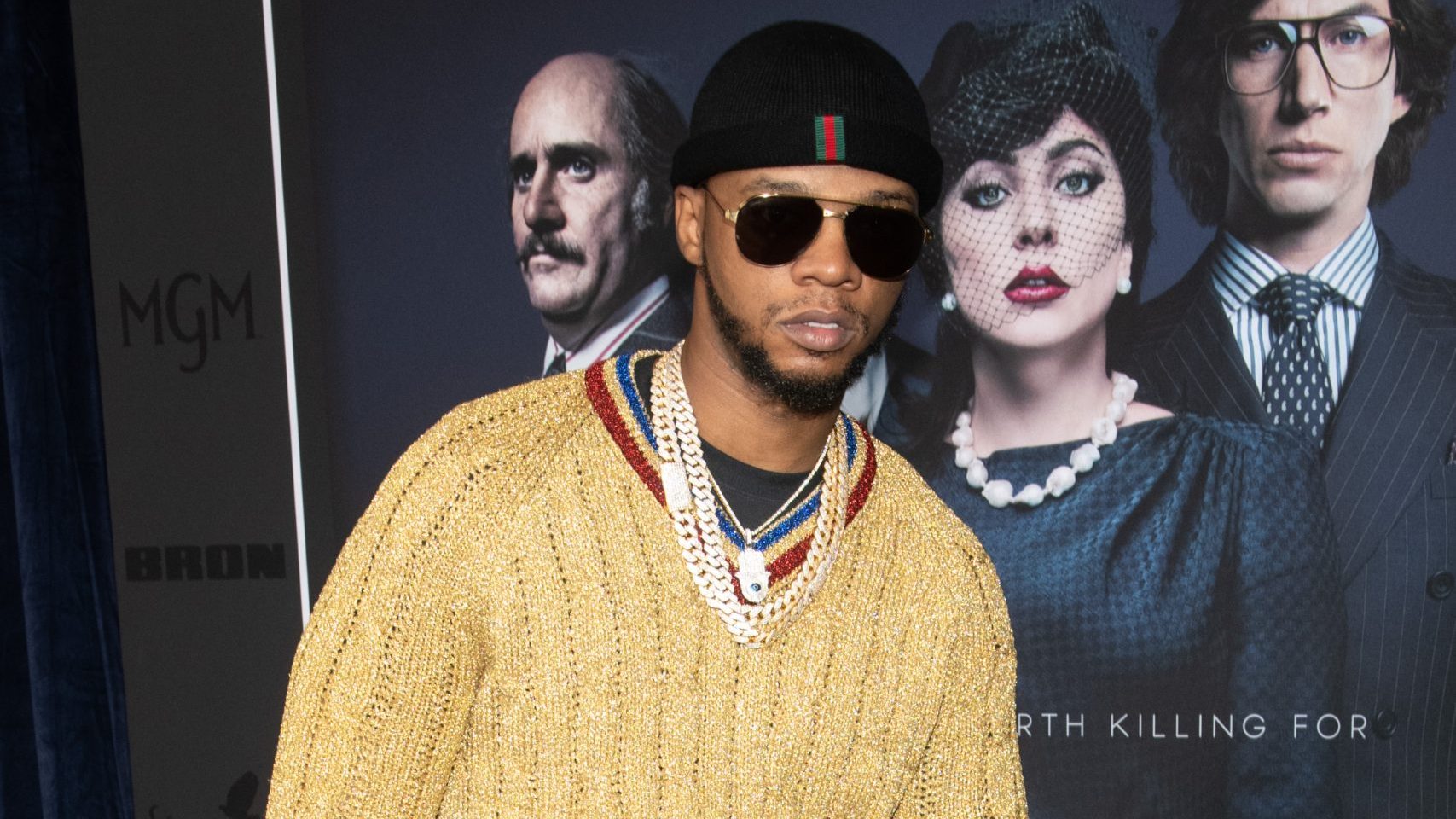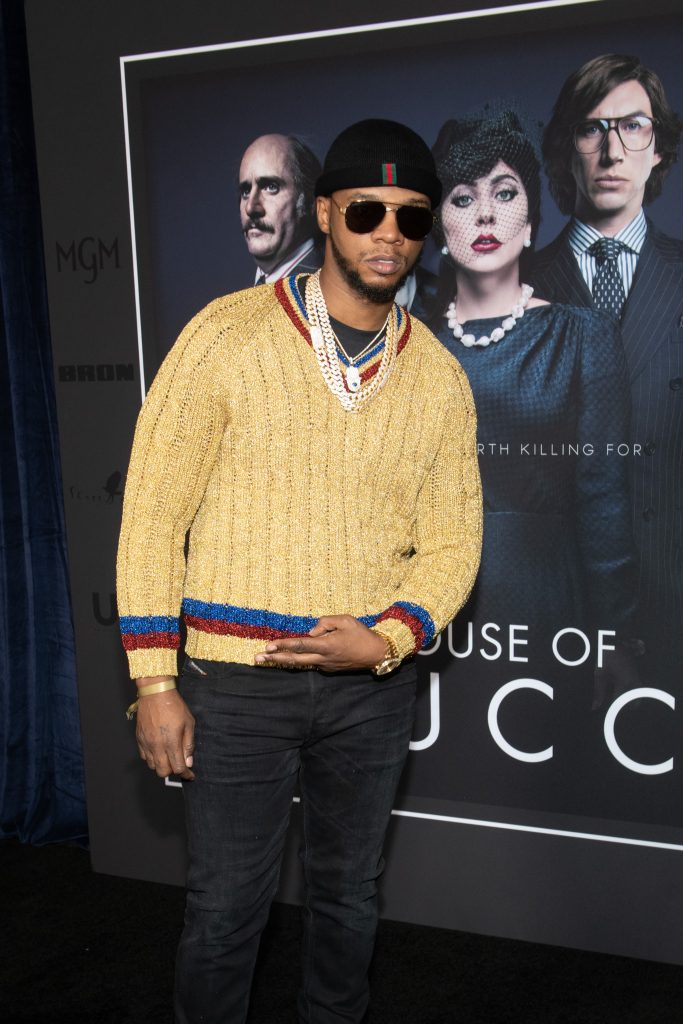
Papoose: A Journey Through Hip-Hop and Resilience

Shamele Mackie, known to the world as Papoose, is a name that resonates deeply within the hip-hop community. Born on March 5, 1978, in Brooklyn’s Bedford-Stuyvesant neighborhood, Papoose has carved out a unique legacy through his lyrical prowess, relentless work ethic, and unyielding dedication to his craft. With a career spanning over two decades, marked by four studio albums, 29 mixtapes, and a life story filled with triumphs and challenges, Papoose remains a compelling figure in rap. This article dives into his journey, from his early days in Brooklyn to his recent personal and professional developments, showcasing why he continues to be a respected voice in hip-hop.
Early Life and the Birth of a Rapper
Papoose’s story begins in the vibrant but gritty streets of Bedford-Stuyvesant, Brooklyn, a cultural hub that has birthed countless hip-hop legends. Nicknamed “Papoose” by his grandmother for his baby-faced resemblance to a Native American child, Shamele Mackie showed a passion for music early on, writing his first rap lyrics at age 11. A matrilineal DNA test later revealed his ancestry traces back to the Tikar people of Cameroon, grounding his identity in a rich cultural heritage. Growing up in a neighborhood steeped in hip-hop culture, Papoose was inspired to pursue music, but his path was far from easy.
His first break came in 1998 when he appeared on Kool G Rap’s album Roots of Evil, marking his entry into the rap scene. This debut, at age 20, showcased his raw talent and set the stage for what would become a prolific career. However, the road to stardom was fraught with obstacles, including a stint at Rikers Island, which fueled his determination to take hip-hop seriously. Papoose’s early struggles shaped his relentless drive, pushing him to produce and distribute his own mixtapes to build a fanbase.
The Mixtape King and Rise to Prominence
Papoose’s breakthrough came in the early 2000s through his mixtape grind, a hallmark of his career. Between 2004 and 2006, he released over a dozen mixtapes, including Street Knowledge, The Beast from the East, and The Underground King. His 2004 single “Thug Connection” b/w “Alphabetical Slaughter” became a street anthem, with the latter showcasing his lyrical dexterity through an intricate rhyme scheme that cycled through the alphabet. This track caught the attention of DJ Kay Slay, who signed Papoose to his Streetsweepers Entertainment imprint after a chance encounter outside Hot 97’s offices. In 2005, Papoose’s mixtape hustle earned him the Justo Mixtape Award for Best Underground Artist, cementing his status in the underground rap scene.
In 2006, Papoose signed a $1.5 million deal with Jive Records to produce his debut album, The Nacirema Dream (“American” spelled backward). However, label conflicts delayed the project, and Papoose parted ways with Jive, keeping the advance. Between 2007 and 2012, he continued his mixtape onslaught, dropping nine more, including Build or Destroy, 21 Gun Salute, and Most Hated Alive. His persistence paid off when he secured a deal with Fontana Distribution, finally releasing The Nacirema Dream in 2013. The album, featuring the single “On Top of My Game” with Mavado, debuted at number 97 on the Billboard 200 and received critical acclaim for its lyrical depth and storytelling.
Papoose’s ability to stay relevant through mixtapes, despite industry setbacks, showcased his entrepreneurial spirit. He collaborated with heavyweights like Busta Rhymes, Jadakiss, and Lil Wayne, and made a bold statement by crashing Hot 97’s Summer Jam in 2013 to perform “Get At Me” with Ron Browz. His feud with Kendrick Lamar over the “King of New York” title, sparked by Lamar’s 2013 track “Control,” further highlighted his competitive edge, as he fired back with a remix and promised more diss tracks.
Studio Albums and Continued Hustle
Papoose’s discBcography reflects his commitment to consistency. Following The Nacirema Dream, he released You Can’t Stop Destiny in 2015, Hoodie Season (2013), Hoodie Season 2 (2014), and Cigar Society (2014) as mixtapes, and his fourth studio album, Endangered Species, in 2020 via Honorable Records/Worldstar Distro. His music often blends sharp wordplay, social commentary, and street narratives, earning him praise as a lyricist. Posts on X in 2025 have called him a “top-5 all-time lyricist and wordsmith,” reflecting his enduring respect among fans.
Beyond music, Papoose has dabbled in acting, with a cameo in the 2008 film Righteous Kill alongside Robert De Niro and Al Pacino, and appearances in Brooklyn’s Finest (2009) and Stick It (2006). His television presence grew through VH1’s Love & Hip Hop: New York, where he joined as a supporting cast member in season six (2015) and became a main cast member in season nine, alongside his wife, Remy Ma. The couple also starred in spin-offs like Remy & Papoose: Meet the Mackies and A Merry Mackie Holiday, showcasing their personal and professional lives.
Personal Life: Love, Loyalty, and Divorce
Papoose’s personal life has often been as publicized as his music, largely due to his high-profile relationship with rapper Remy Ma. The couple married in 2008 over the phone while Remy was incarcerated for a 2007 shooting incident. Papoose’s loyalty during her six-year sentence at Bedford Hills Correctional Facility became a cornerstone of their public image, with him famously attempting to smuggle a key into prison, leading to a six-month visitation ban. They formalized their marriage in 2016, featured in Love & Hip Hop: New York’s sixth season finale, and welcomed their daughter, Reminisce Mackenzie, in December 2018. Papoose also has three children from previous relationships: Dejanae (born 1996), Shamele Jr. (born 1999), and Destiny (born 2000).
Their relationship, once celebrated as a symbol of “Black Love,” faced turmoil in recent years. Rumors of infidelity surfaced in 2022, with allegations that Remy Ma was involved with battle rapper Eazy The Block Captain. By December 2024, the couple confirmed their separation, with Remy accusing Papoose of dating boxer Claressa Shields and Papoose alleging Remy’s multiple affairs, including with Eazy. On May 22, 2025, Papoose filed for divorce in New York, citing irreconcilable differences and escalating their feud into a public social media battle.
Papoose’s posts on X and Instagram accused Remy of narcissism and claimed he wrote 90% of her raps, a revelation that sparked debate among fans. Remy countered, alleging she had ended their relationship years earlier and allowed Papoose to maintain their public image for his benefit. The drama intensified with Papoose’s new relationship with Claressa Shields, who defended him online, while Remy confirmed her relationship with Eazy in January 2025. Despite the personal chaos, Papoose has remained supportive of Shields’ boxing career, notably seen helping her during a 2025 match.
Community Work and Cultural Impact
Beyond music and personal drama, Papoose has made significant contributions through community outreach. He’s engaged in youth mentorship, education advocacy through music, and charity work, including donations to the Make-A-Wish Foundation and Hurricane Katrina relief efforts. His commitment to social issues reflects his desire to give back to the community that raised him.
Papoose’s influence in hip-hop lies in his ability to stay true to his lyrical roots while navigating industry challenges. His intricate rhyme schemes, as seen in tracks like “Alphabetical Slaughter” and “On Top of My Game,” have inspired countless rappers, and his mixtape hustle set a blueprint for independent artists. His 2025 freestyle, taking shots at Eazy The Block Captain, shows he remains a formidable lyricist unafraid to address personal and professional rivals.
Net Worth and Current Endeavors
As of 2025, Papoose’s net worth is estimated at $500,000, derived from album sales, streaming royalties, live performances, and TV appearances. While not among the wealthiest rappers, his financial stability reflects his consistent output and entrepreneurial ventures.
Papoose continues to work on new music, with fans anticipating future releases. His recent public feuds and personal life changes have kept him in the spotlight, but his focus remains on his craft. Whether through freestyles, mixtapes, or community work, Papoose’s resilience and dedication ensure his legacy endures in hip-hop.
Conclusion
Papoose’s journey is one of grit, talent, and reinvention. From his early mixtape days to his mainstream breakthroughs and personal challenges, he has remained a steadfast figure in hip-hop. His ability to navigate label disputes, maintain a prolific output, and stay relevant through lyrical skill and community engagement speaks to his enduring influence. While his personal life, particularly his high-profile divorce from Remy Ma, has drawn tabloid attention, Papoose’s story is ultimately about loyalty—to his craft, his fans, and his roots. As he continues to release music and support causes close to his heart, Papoose proves that true success in hip-hop is measured not just in wealth or fame, but in authenticity and impact.

